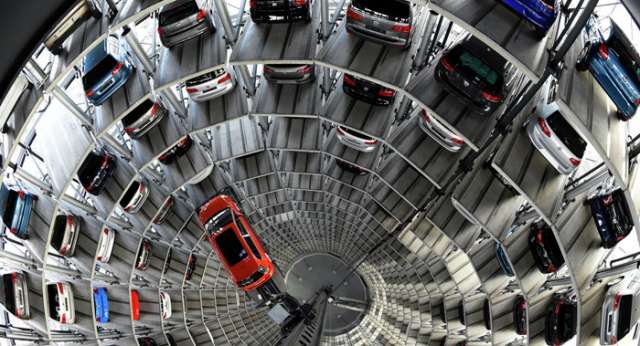Europe’s number one economy heavily relies on its automobile sector, which generates around 14 percent of the country’s GDP.
“This scandal has an enormous potential to derail the German economy,” Carsten Brzeski — chief economist for ING bank in Germany – told Sputnik on Thursday.
This could have a knock-on effect on other German car makers, like BMW, Daimler and Opel, and the German economy as a whole, he added.
“BMW is already having problems, and the country’s entire automobile industry may suffer from this scandal,” Brzeski noted.
When asked whether Chancellor Angela Merkel had stepped forward and made any definitive statement about all this, Carsten Brzeski said that “this is not her style” and that she would wait for the official results of the ongoing probe to provide any comment on the issue.
Asked what VW can do to restore its image, Carsten Brzeski said the current scandal was just a short-term issue that will not overshadow the obvious fact that Germany builds high-quality cars, so the reputational damage will be rather short-lived.
Some believe that the VW scandal would lend additional urgency to the issue of switching to alternative energy cars such as Tesla, which uses a large electric battery, and possibly other cars using the so-called “dual-use” technology.
“Well, there is a silver lining here for cars using renewable energy of course, but in Europe cars using renewable energy, like electric cars, can see their market picking up only if it is subsidized by the governments. Clearly this is an opportunity for cars using renewable energy,” Carsten Brzeski said in conclusion.
VW is one of the world’s largest car manufacturers and has over 270,000 employees in Germany.
On September 18, the US Environmental Protection Agency filed a complaint against Volkswagen, alleging the company had built in sophisticated cheat devices that allowed vehicles to pass strict US emissions tests. The Department of Justice recently opened a separate probe into the company.
On Tuesday, Volkswagen chief executive Martin Winterkorn admitted the company had installed emissions cheating devices in as many as 11 million cars sold worldwide.
According to the EPA criterion, Volkswagen could face up to $18 billion in fines.
More about:
















































